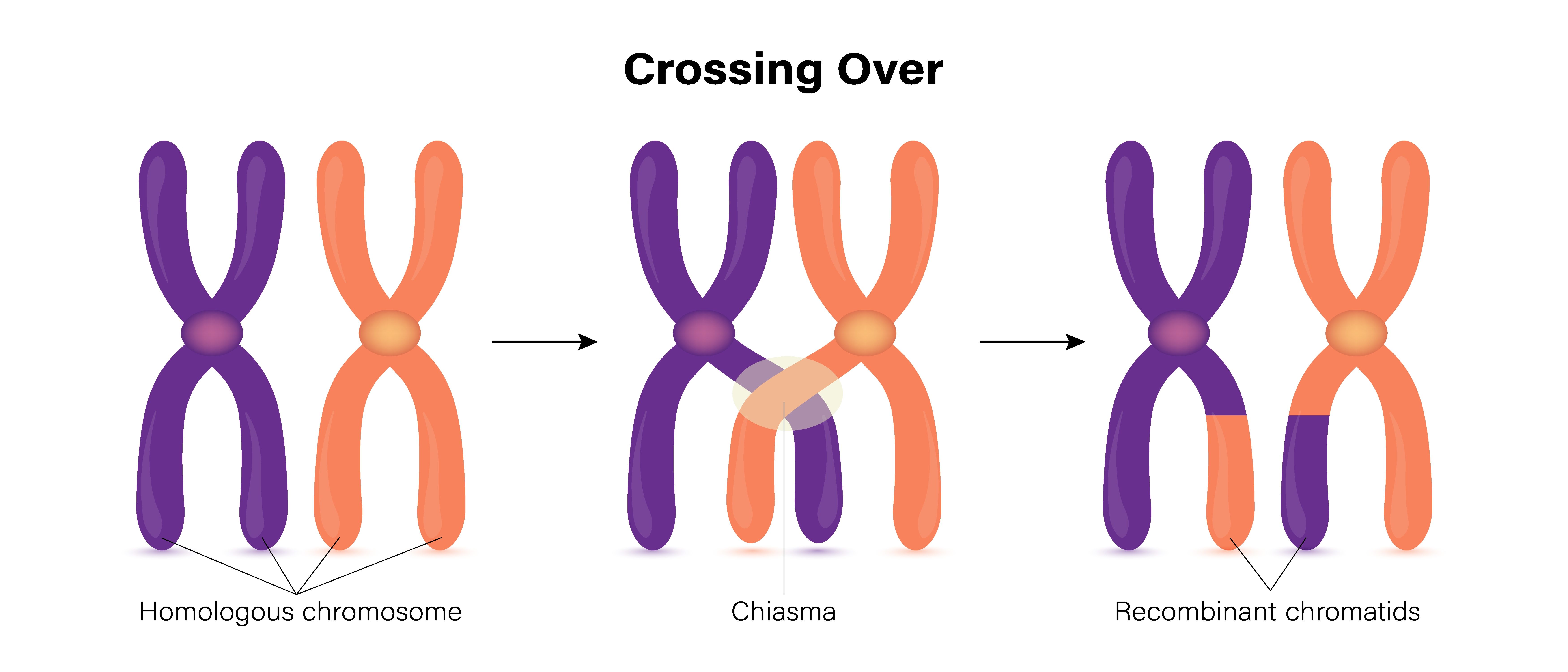You’ve probably heard somewhere that siblings share half of their genes with one another. That’s, like, Genetics 101, right? Actually, not quite. Thanks to the randomness of chromosome segregation and a process called recombination, siblings’ genomes are not always 50 percent the same.
This figure is actually an average, as Our World in Data researcher Saloni pointed out recently on Twitter. So, while you and your sibling probably share around 50 percent of your genes, the actual number is likely a little different.
Genetic inheritance
To understand why that is, you first need to know a little bit about genetic inheritance.
As humans, our DNA is coiled into 23 pairs of chromosomes – 46 chromosomes in total. Twenty-two of these pairs are called autosomes, and the final pair are sex chromosomes (XX or XY). One chromosome in each pair is inherited from our mother and the other from our father.
For this to happen, cells must first undergo a process called meiosis to produce gametes (egg or sperm cells). During meiosis, the number of chromosomes in the parent cell is reduced by half: a cell with 46 chromosomes produces four gametes, each containing just 23 chromosomes, one from each pair.
When the egg and sperm (each with 23 chromosomes) then fuse during reproduction, an embryo with a complete set of 46 chromosomes is formed.
But before the chromosome pairs get split apart, a sort of genetic reshuffling occurs. This is known as recombination. Autosomes line up in their pairs and exchange bits of genetic information, resulting in each egg and sperm cell having its own unique combination of genes.

A pair of chromosomes undergo recombination.
Image credit: Dee-sign/Shutterstock.com
Because of this genetic switcheroo, your siblings will have a different combination of genes to you. On average, though, half will be the same.
“Imagine your parent’s genes as coins. The sides of a coin, heads and tails, represent the two copies of each of their genes. The chances of inheriting a head or a tail is just like flipping a coin, totally random,” Anne Tecklenburg Strehlow wrote for The Tech back in 2005, while a Ph.D. candidate in Stanford’s Department of Genetics.
“Since we have [around] 25,000 genes in our DNA, whether we inherit the head or tail of each gene is like flipping a coin 25,000 times. If we do that, we are most likely to get 1/2 heads and 1/2 tails.”
The same is true of our siblings. “You both may not have exactly 12,500 of each – you may have 12,600 heads and 12,400 tails and your sibling has 12,550 tails and 12,450 heads – but you are pretty close to 50 percent,” added Strehlow.
What percentage of our genes do we share with our siblings?
We know it’s probably not 50 percent, so how much of our genome is shared with our siblings?
In a 2006 study, researchers plotted the variability in siblings’ autosomal genomes, using this information to learn about variation in height within a population. The average proportion of the genome shared between siblings, they found, was 49.8 percent, with a range of 37.4 to 61.7 percent.
Other estimates support this, suggesting we share roughly 40 to 60 percent.
What about other family members?
According to genealogy site 23andMe, the siblings’ stat isn’t the only genetic lie we’ve been spun (in fact, there are quite a few).
Think you share 25 percent of your DNA with your grandparents? Think again, it’s probably more like 17–34 percent. As for your first cousins, it could be anywhere between 4 and 23 percent, not the 12.5 you might have assumed.
All “explainer” articles are confirmed by fact checkers to be correct at time of publishing. Text, images, and links may be edited, removed, or added to at a later date to keep information current.
Source Link: Siblings Don't Always Share 50 Percent Of Their Genes